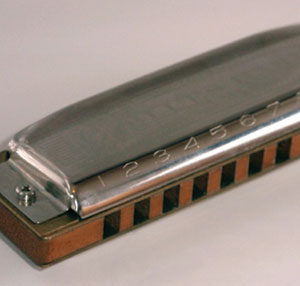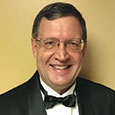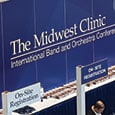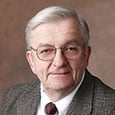Maybe it’s my strange and nerdy side, but I enjoy learning obscure facts. Much of what I know is admittedly impractical and useless, unless you plan on becoming a game show contestant. Perhaps one of these entries will be the answer for final Jeopardy. I have attempted to verify the authenticity of each entry on Wikipedia, Snopes.com, and Uncle John’s Bathroom Reader. In one instance you will just have to take my word on it.
Scooby Doo’s name is taken from Frank Sinatra’s song, “Strangers in the Night.”
In 1914 the Vatican condemned the turkey trot and the saxophone.
 The harmonica is the world’s most popular instrument.
The harmonica is the world’s most popular instrument.
In Stalin’s Great Terror of 1937, many saxophonists were shot or exiled. The saxophone was considered a dangerous capitalist instrument and a symbol of the tsarist past.
John Lennon’s first girlfriend was named Thelma Pickles.
Arnold Schoenberg suffered from triskadecaphobia, the fear of the number 13. He died on Friday the 13th.
In a 1921 article in the Ladies’ Home Journal, an author cited scientific evidence conducted in insane asylums that showed “jazz on the normal brain produces an atrophied condition on the brain cells of conception, until very frequently those under the demoralizing influence of the persistent use of syncopation, combined with inharmonic partial tones, are actually incapable of distinguishing between good and evil, right and wrong.”
The fear of music is called melophobia. Its symptoms include breathlessness, excessive sweating, nausea, dry mouth, feeling sick, shaking, heart palpitations, inability to speak or think clearly, a fear of dying, becoming mad or losing control, a sensation of detachment from reality, or a full-blown anxiety attack. (Note: This sounds like what I have around contest time.)
“He Ain’t Heavy, He’s My Brother” was inspired by Father Flanagan’s Boy’s Town poster. The poster had a picture of a priest on one side and two kids facing him, one sitting on the other’s shoulders. The caption read, “He ain’t heavy Father, he’s my brother.”
The longest parade in the world is the Marksmen’s Parade that takes place in Hanover every year during the Shutzenfest. The parade is more than seven miles long with 12,000 participants from all over the world and more than 100 bands and 70 floats and carriages.
Sir Georg Solti, who conducted the Chicago Symphony for 22 years, holds the record for most Grammy awards won by an individual. He was nominated 74 times and won 31 awards.
Carnegie Mellon University offers a bagpipe major.
The first double album was Benny Goodman’s Live at Carnegie Hall (1938).
The comedian Tommy Cooper once said, “I inherited a painting and a violin, which turned out to be a Rembrandt and a Stradivarius. Unfortunately, Rembrandt made lousy violins and Stradivari was a terrible painter.”
The first CD pressed in the United States was Bruce Springsteen’s Born in the USA.
The mother of Monkees member Michael Nesmith invented Liquid Paper correction fluid.
John Coltrane, Duke Ellington, Charles Mingus, Thelonius Monk, Jelly Roll Morton, and Charlie Parker have appeared on postage stamps.
 In 2006 scientists at the Blackpool Sea Life Center in England couldn’t get two of their sharks to mate. They tried piping in Barry White music through the speakers above the shark’s tank, but this failed. Other attempts using music by Beethoven, Mozart, and Puccini were also unsuccessful. The song that finally worked was Celine Dion’s “My Heart Will Go On” from the movie Titanic.
In 2006 scientists at the Blackpool Sea Life Center in England couldn’t get two of their sharks to mate. They tried piping in Barry White music through the speakers above the shark’s tank, but this failed. Other attempts using music by Beethoven, Mozart, and Puccini were also unsuccessful. The song that finally worked was Celine Dion’s “My Heart Will Go On” from the movie Titanic.
Violinist Joshua Bell plays in the subway.
Ulysses S. Grant liked to tell people, “I only know two songs: one is ‘Yankee Doodle’ and the other one isn’t.”
 The world’s largest musical instrument is the Great Stalactite Organ, located deep in Luray Caverns in Virginia’s Shenandoah Valley. Stalactites covering more than three acres of surrounding caverns produce tones of symphonic quality when electronically tapped with rubber-tipped mallets. The in-strument was invented by Leland Sprinkle of Springfield, Virginia.
The world’s largest musical instrument is the Great Stalactite Organ, located deep in Luray Caverns in Virginia’s Shenandoah Valley. Stalactites covering more than three acres of surrounding caverns produce tones of symphonic quality when electronically tapped with rubber-tipped mallets. The in-strument was invented by Leland Sprinkle of Springfield, Virginia.
Lawrence Welk had a number one hit in 1961 with Calcutta.
Rhythm is the longest English word without a vowel. It is tied with syzygy.
Mick Jagger attended the London School of Economics for two years.
My dad went on a date with Ellen Taaffe (Zwilich) when they were both in college at Florida State University.
The song “Happy Birthday” is a copyrighted song written by Patty Hill and Mildred J. Hill, Kentucky teachers from the 1890s. This is why you rarely hear the song in movies and on television. Royalties would have to be paid.
On second thought, this information might not be useless after all. If you find a conversation lagging at a band convetion, pull out some of these fascinating tidbits. At best you could become the life of the party. At worst (which is more likely), you will soon have a table all to yourself in a crowded restaurant.






